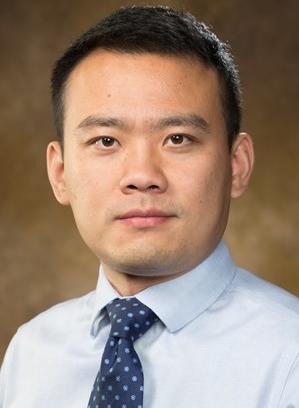A multi-university research team led by Xiao Liu, the David M. McKenney Family Associate Professor in the H. Milton Stewart School of Industrial and Systems Engineering (ISyE), has been awarded a $1.5 million grant from the National Science Foundation (NSF). The project, “AccelNet Implementation Phase 1: International Networks Towards Future Resilience of U.S. Urban Socio-Technical Systems,” brings together experts across the country and around the world to tackle one of society’s most pressing challenges: building resilient cities for the future.
Liu serves as the principal investigator (PI), joined by co-PIs from five universities: Hiba Baroud (Vanderbilt University), Linyin Cheng and Song Yang (University of Arkansas), Jennifer Pazour (Rensselaer Polytechnic Institute), Yisha Xiang (University of Houston), and Xiang Zhou (Harvard University). Together, they are launching Resilient-NET, a collaborative research team and network designed to connect U.S. and international research communities focused on the resilience of urban socio-technical systems.
The project takes a holistic approach to urban resilience, focusing on three interwoven dimensions:
- Technology (the “New Dimension”) – examining the integration of AI-enabled systems into infrastructure and mobility networks.
- People (the “Missing Puzzle”) – exploring the complex and evolving interactions between humans and technology.
- Environment (the “Uncertainty Accelerator”) – addressing the rising frequency of extreme natural events that disrupt urban systems, with the goal of improving predictive modeling, disaster preparedness, and the development of urban digital twins.
By combining these perspectives, the team aims to generate new insights into how technology, society, and climate intersect, and to chart pathways toward resilient, sustainable, and livable cities.
“Urban resilience is an interdisciplinary grand challenge,” Liu said. “It requires coordination of talents and resources to create transdisciplinary solutions. Through Resilient-NET, we hope to consolidate a roadmap for resilient urban ecosystems and nurture the next generation of leaders who will tackle these problems on a global scale.”
The project benefits from the support and collaboration from multiple research fields within ISyE such as System Informatics and Control, Energy and Sustainable Systems, Data Science and Statistics, and Supply Chain and Logistics Institute (SCL) and AI4OPT of Georgia Tech, domestic partners including the Weatherhead Center for International Affairs at Harvard, the Natural Hazards Center at the University of Colorado, IBM Research, the Taylor Geospatial Institute, and Argonne National Laboratory, as well as international partners, including the Singapore-ETH Center on Future Resilient Systems, Karlsruhe Institute of Technology in Germany, Global South partners such as Tecnológico de Monterrey and Universidad Panamericana Guadalajara, and the 4TU Centre for Resilience Engineering in the Netherlands.
Looking ahead, the researchers envision Resilient-NET as a long-term hub that not only advances scientific understanding but also equips students and early-career researchers with global leadership skills. At a time when artificial intelligence is rapidly reshaping infrastructure and mobility, Liu and his collaborators see this work as critical to ensuring that urban systems continue to function in the face of uncertainty.
Liu shares, “Our vision is that Resilient-NET will serve as a bridge, linking disciplines, institutions, and countries, to build cities that are not only technologically advanced, but also safe, welcoming, and adaptable for generations to come.”
